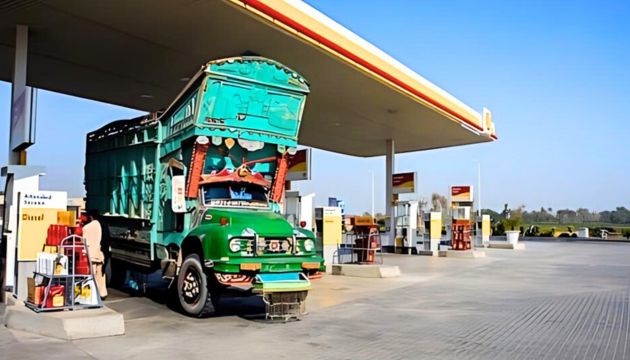ISLAMABAD: The federal government has directed oil marketing companies to maintain at least 20 days’ worth of petrol reserves as tensions rise in the Middle East due to the ongoing Iran-Israel conflict. To meet this target, the government has also ordered the urgent import of 140 million litres of petrol.
According to the private tv report, the Oil and Gas Regulatory Authority (OGRA) has officially issued instructions to all oil companies to follow this order without delay.
Authorities have also fast-tracked import procedures. An oil tanker that was originally expected to arrive on July 6 will now reach Pakistan by June 26. This vessel is carrying about 70 million litres of petrol.
According to Pakistan State Oil (PSO), an additional 140 million litres will be available by July 1. Officials also said emergency fuel tenders may be issued if the regional situation worsens.
Meanwhile, the Pakistan National Shipping Corporation (PNSC) has warned that any closure or disruption in shipping routes, especially in the Gulf region, could seriously affect Pakistan’s oil supplies. The country depends heavily on oil imports from that area.
— ALSO READ —
Naveed Asghar appointed acting Wapda chairman after Ghani resigns
Shipping industry sources report that freight charges for oil tankers have gone up by 15% due to regional tensions. A trip that earlier cost around $900,000 now ranges between $1.1 million and $1.2 million. Insurance costs per trip have also risen from $15,000 to $22,000.
PNSC officials have confirmed operational challenges in the Strait of Hormuz. Temporary GPS signal disruptions have been reported. One PNSC ship was delayed for two hours due to a GPS blackout in the strait.
Earlier, the government ruled out any reduction in the Petroleum Development Levy (PDL), despite the rising oil prices. Officials have warned that local fuel prices may go up if international oil rates continue to rise. Global prices have jumped by 16% due to the conflict.
At a meeting of the National Assembly’s Standing Committee on Finance, chaired by Naveed Qamar, Finance Secretary Imdadullah Bosal said Pakistan’s current petrol reserves are enough, but price adjustments may become necessary.
— ALSO READ —
Court declares tree felling on Canal Road not allowed for Yellow Train
“We are monitoring the situation closely. If international prices go up, domestic prices will also need to rise,” Bosal said, adding that the levy will remain unchanged.
Opposition Leader Omar Ayub warned that the crisis could further increase Pakistan’s budget deficit and trade imbalance, saying the country is already under heavy debt.
Finance Minister Muhammad Aurangzeb agreed with the opposition and confirmed that Prime Minister Shehbaz Sharif has set up a high-level committee to monitor petrol stocks and prices.
The conflict between Iran and Israel has escalated sharply. According to Iranian state media, Israeli strikes have killed at least 430 people in Iran and injured over 3,500.














